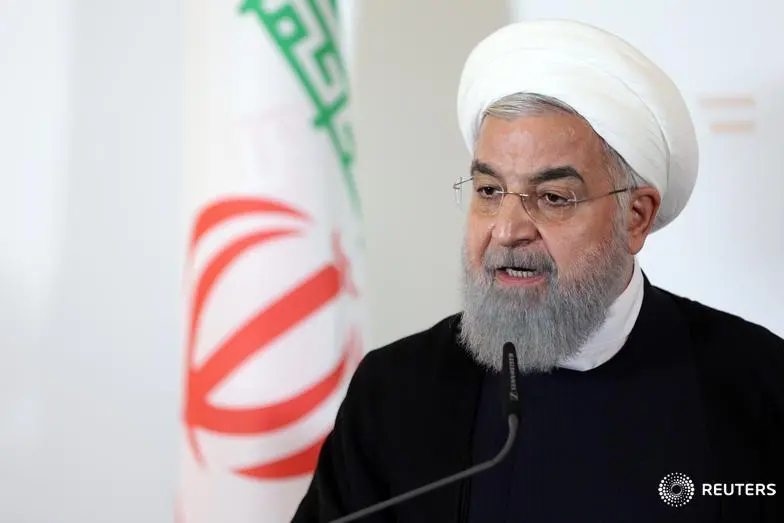PHOTO
DUBAI- Iranian President Hassan Rouhani appointed academic Farhad Dejpasand as the new economy and finance minister in a cabinet reshuffle on Sunday, state television reported, as the country faces mounting U.S. sanctions.
The proposed cabinet changes come as the government faces intense pressure over the economic instability mostly caused by U.S. sanctions. The economy has markedly deteriorated in the past year, suffering rising inflation and unemployment, a slump in the rial currency and state corruption.
Rouhani also named a new urban development and roads minister, an industry, mines, and trade minister, and a new labour minister. The new appointments need approval from parliament before they can take effect.
Mohammad Shariatmadari, the outgoing industries minister, has been nominated to head the Labour, Cooperatives and Social Affairs Ministry.
Mohammad Eslami was named to head the Urban Development and Roads Ministry, and Reza Rahmani, who has earlier headed the parliament's commission on mining and industry, was named as the new industry, mines, and trade minister.
Dejpasand, the proposed economy minister, has also worked as deputy head of the state Plan and Budget Organization, among other postings, and is widely seen as a technocrat.
Washington reintroduced sanctions against Iran’s currency trade, metals and auto sectors in August after the U.S. withdrawal from a multinational 2015 deal that lifted sanctions in return for limits on Iran’s nuclear program. U.S. curbs on Iran’s vital oil exports are set to come into force in November.
Iranian political analyst Hamid Farahvashi said Rouhani had nominated lesser known ministers to ease tensions with parliament which sacked the ministers of labour and of economy and finance earlier this year, blaming them for the collapse of the rial currency and surging inflation.
"Rouhani faces a dilemma. He cannot improve the economy even if he changes all the relevant ministers because of sanctions, corruption in the country and the mismanagement.
"He has to allay tension and that is why he has selected less political and unknown figures," Farahvashi told Reuters from Tehran.
Earlier this year, anger over the government's handling of the economy erupted into public protests across Iran. Some turned violent and at least 25 people were killed. Hundreds were arrested but officials say most have been released.
Reformist analyst Ali Shakourirad said the reshuffle was brought about by this week's resignation of the ministers of economy and finance, and roads who faced public pressure because of the soaring cost of living and alleged mismanagement.
"Rouhani was forced into announcing this reshuffle after public pressure led to the resignation of two ministers," Shakourirad said.
The International Monetary Fund predicts that Iran's economy would shrink 1.5 percent this year following the reimposition of U.S. sanctions with a drop of 3.6 percent seen in 2019, before recovering slowly.
State media said parliament was expected to discuss the nominations and vote on the new proposed ministers on Saturday.
Supreme Leader Ayatollah Ali Khamenei has ordered officials to urgently find solutions to ease the economic crisis spurred by the re-imposition of U.S. sanctions, saying arch-enemy Washington was waging an "economic war" on the Islamic Republic.
(Additional reporting by Dubai newsroom Editing by Raissa Kasolowsky) ((Parisa.hafezi@thomsonreuters.com))





















